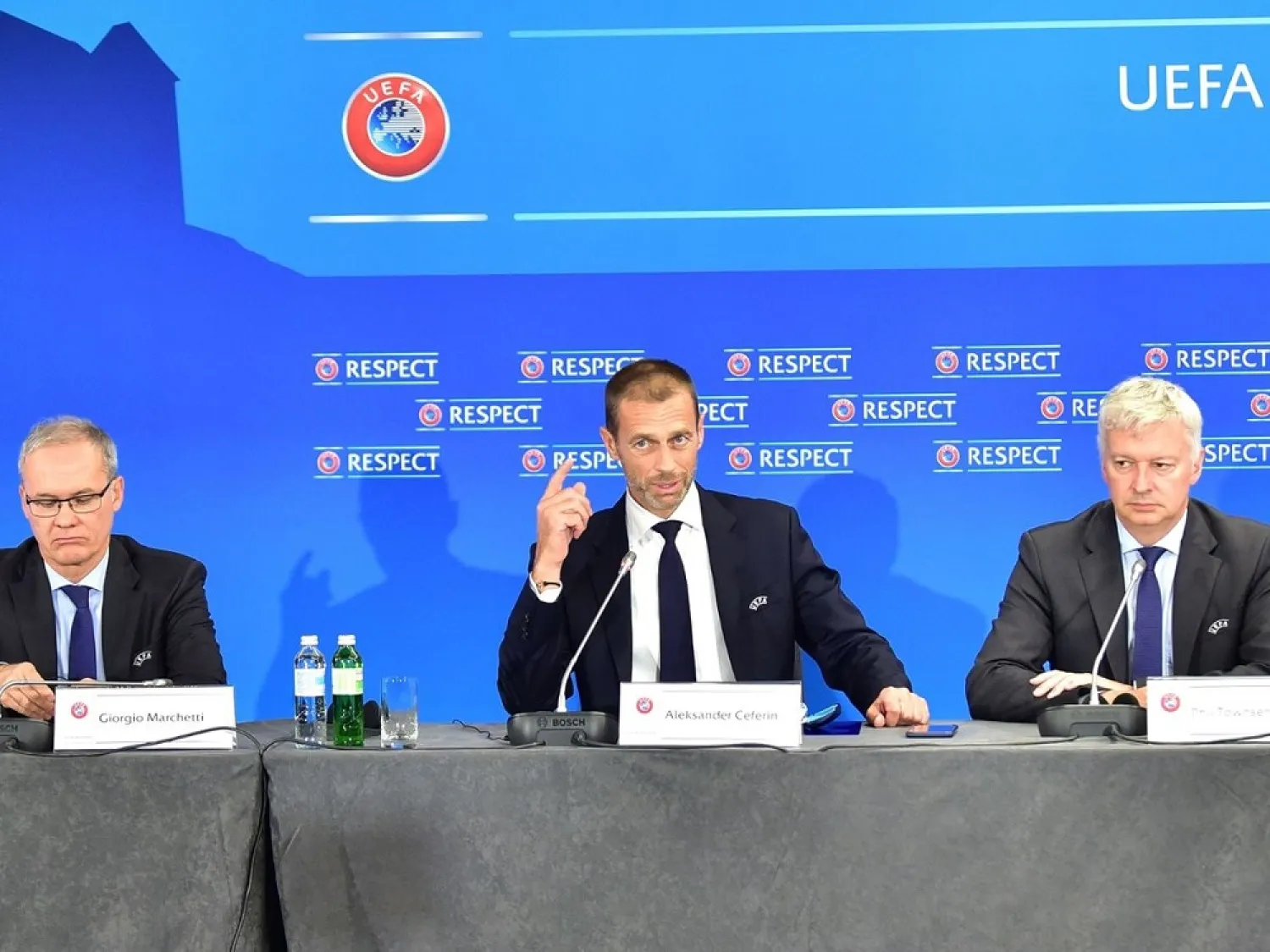Caving in to apparently nonexistent demands for a competition football fans were unaware they needed, European football’s governing body has announced a new wheeze due to kick off in 2021. The Europa Conference League will serve as a third-tier Uefa club competition and give more clubs in more countries a chance to participate in Europe.
At least that was the party line when the tournament was unveiled by Uefa’s president, Aleksander Ceferin, at the organization's executive committee meeting in Ljubljana last week, although cynics might be excused for thinking it is little more than a sop to keep European football’s also-rans happy while ensuring the wealthiest clubs continue to qualify for the Champions League.
Confirmed last December and ratified last week, the Europa Conference League will sit below the Champions League and Europa League in the hierarchy and will comprise 32 teams split into eight groups of four. Group winners will progress to the last 16, and an additional knockout round will be played before the last 16 between the second-placed teams and eight teams who drop from the Europa League. The winners of the Europa Conference League will enter the following season’s Europa League. Matches will be played on Thursday with kick-offs at 5.45pm and 8pm UK time.
It will be left to national associations to decide the criteria for earning a place, with England, Spain, France, Italy and Germany getting one each. England’s will go to the winners of next season’s Carabao Cup, but if that team end up qualifying for Europe by other means, as Manchester City did last season, the recipients of the Europa Conference League will be determined by league position.
In a move that could have serious ramifications for Scottish clubs, Uefa has announced that the Europa League group stages are being reduced from 48 teams to 32 from 2021. From that point, only nations ranked 15th or higher in Uefa’s coefficient table will be granted access to the Europa League. The league winners of countries with a lesser ranking will still enter Champions League qualifying but seem likely to go into the Europa Conference League should they fail to make the group stages. It should be stressed that the finer details regarding qualification have yet to be decided.
The Scottish Premiership winners currently enter the Champions League qualifying rounds, while the teams that finish second, third and fourth compete in Europa League qualifying. Scotland are 19th in Uefa’s coefficients, meaning all but the champions would automatically go into the new competition and presumably suffer financial consequences. Should Scotland improve their ranking to 15th place or higher, they could have as many as five representatives in Europe: two in Champions League qualifying and three elsewhere.
In England much has been made of the Premier League travails being endured by Wolves. Despite Nuno Espírito Santo’s pre-season assurances that his squad would be well equipped to maintain the league form that earned them qualification for this season’s Europa League, all available evidence suggests escapades on the continent are having a predictably adverse effect on results at home.
In recent years teams from outside the Premier League’s Big Six have suffered on the domestic front after clambering aboard the Thursday-Sunday Europa League treadmill. Between them, Burnley (14), Everton (12), Southampton (17) and West Ham (17) acquired 60 points fewer in the seasons immediately following European qualification. It does not take a genius to figure out why.
Qualifying for Europe’s second-tier competition tends to hamstring any chance such clubs have of kicking on and qualifying for its main one. It is, one suspects, a state of affairs Uefa and those clubs at the top of the Premier League hierarchy find entirely agreeable in their insatiable quest for wealth.
Wolves fans should enjoy their foray into Europe but are entitled to view it as the distraction that will end any chance of gatecrashing the Premier League’s top-four party in a season when the places of Tottenham, Manchester United and Chelsea seem under threat. The Europa Conference League will further jeopardize any small chance that ambitious middle-ranking top-flight teams from Europe’s major leagues have of getting into Uefa’s blue-riband event.
Although this new competition will ensure more clubs than ever get to muddy their spats in European competition, it seems abundantly clear it will tighten the stranglehold of those rich grandees from the English, Spanish, French, Italian and German leagues who consider their place among the continental elite not so much a privilege as a divine and inalienable right.
The Guardian Sport









